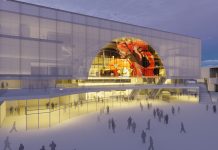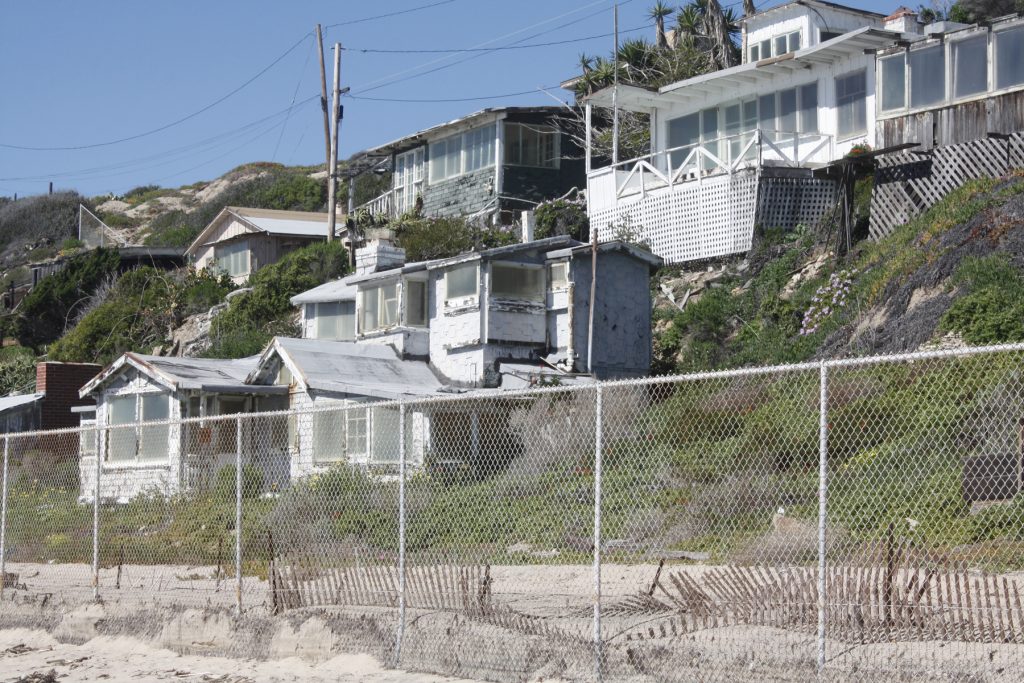
— Photo by Christopher Trela ©
Beach goers will have more opportunities to stay in one of the coveted Crystal Cove cottages soon, following a state board’s approval this week of the renovation project for the remaining 17 historic, and now dilapidated, cottages.
California Coastal Commission unanimously approved the coastal development permit Wednesday, allowing the Crystal Cove Alliance to move forward with the project.
Commissioner Gregory Cox, who moved to approve the application, said it was an exciting project.
“I think it’s going to be one of the crown jewels in the state park system, if it isn’t already,” Cox said. “[It will] serve the citizens of this state very, very well.”
California Department of State Parks and Recreation and Crystal Cove Alliance are joint applicants on the permit.
It was a historic day for the historic cottages, said CCA and Vice President Laura Davick.
“We’re very happy with the decision,” Davick said Thursday. “We’re looking forward to rolling up our sleeves and moving forward with this last piece.”
They have been working on restoring the 46 beachfront cottages for several years. This is the final phase of the renovation project. The approval will increase public access to affordable overnight stays and offer education programs to underserved students, according to CCA officials.
The project will create an additional 47,815 rental opportunities for families every year, according to CCA.
Once restored, the 17 cottages will yield a total of 22 affordable overnight rental units.
The existing rates are in compliance for phase three, which range from $35 (dorm bed, shared room) to $245 (large cottage).
The next step will be evaluating the project and the early planning stages for a capital campaign, Davick explained Thursday.
“We look forward to the next 12 months to raising awareness to how important it is to finish this last piece,” Davick said after the decision. “We need participation from the entire community to make this last piece a reality.”
The final phase of the project is estimated at $30 million, Davick explained. She emphasized that this is only a rough estimate.
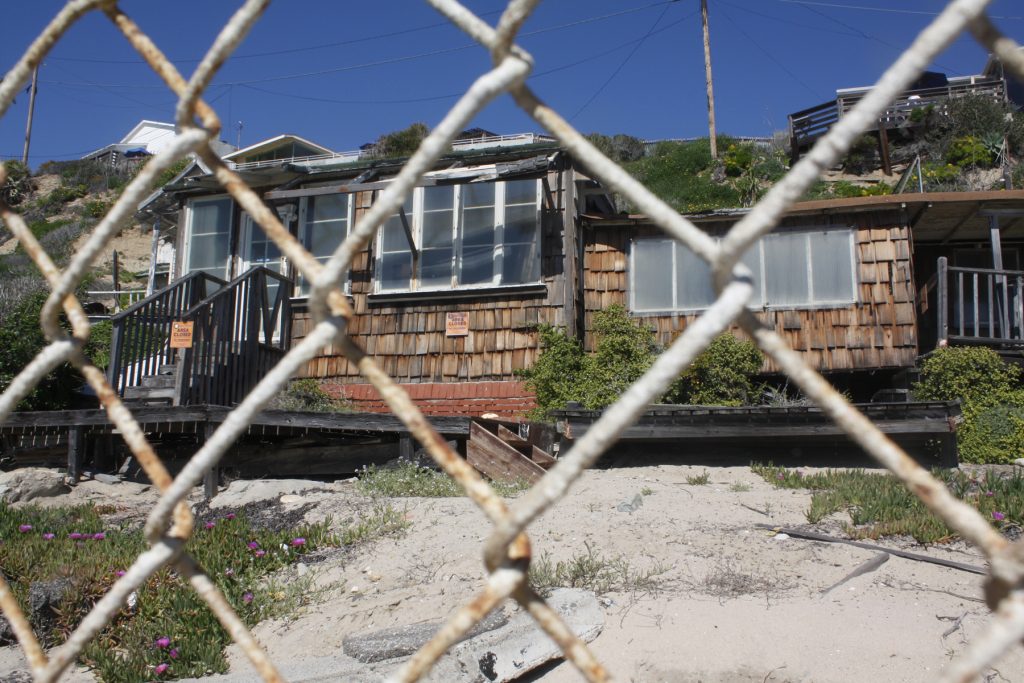
— Photo by Christopher Trela ©
Approximately half of that cost is for the infrastructure and site preparation, and the other half for cottage restoration, she explained.
Infrastructure includes putting in underground utilities, sewer system, retaining walls, boardwalk installation, and additional requirements from CCC based on sea level rise.
It’s difficult to say how long the fundraising process will take, she added.
There is no timeline at this point, Davick noted.
“The Crystal Cove Alliance is committed to raising the balance of the funds and [the timeline] will be driven by how quickly we are able to do that,” she said.
They will be working through the end of 2017 to complete estimates for construction.
Officials envision first working on gathering the remaining funds, then working on infrastructure, which will take approximately two years to complete, and finally starting the actual renovation of the cottages, Davick explained Thursday.
The California Coastal Commission provided $5 million in mitigation funding to assist with the Crystal Cove final phase rehabilitation project. That was an important part of the process, Davick said.
“Truly, without it, this phase three project may not be moving forward,” she said during the meeting.
“Our vision is a fully restored and sustainable Crystal Cove State Park, open to the public, advancing education and conservation for generations to come,” Davick said.
Since the income from Crystal Cove State Park stays in the park, they should not require additional revenue from the general fund for cottage maintenance in the future.
Of the Commission’s portion, $4 million is going toward infrastructure and restoration project, and $1 million is dedicated to the education program. They have also already raised $3 million from a private foundation, she added.
There was a lot of talk Wednesday about the new Coastal Dynamics Education Program that will be developed.
Crystal Cove is the perfect laboratory to introduce students to engineering, CCA President and CEO Alix Hobbs said Thursday.
“That’s exactly what it’s all about,” she added, to educate and prepare the students, in order to “hand off the legacy that we all created to the next generation.”
During the three-day, two-night program, no less than 125 and up to 200 students, will stay in cottage #20. Two nights allow the students to really immerse themselves, Hobbs said.
The education program will help state parks more accessible to underserved kids in California, noted Assistant District Superintendent for the Orange Coast District of California State Parks Jim Newland.
“These extended overnight experiences will give students who, frequently, have not visited the beach before, the chance to develop their own personal relationship to California’s coast,” Hobbs said.
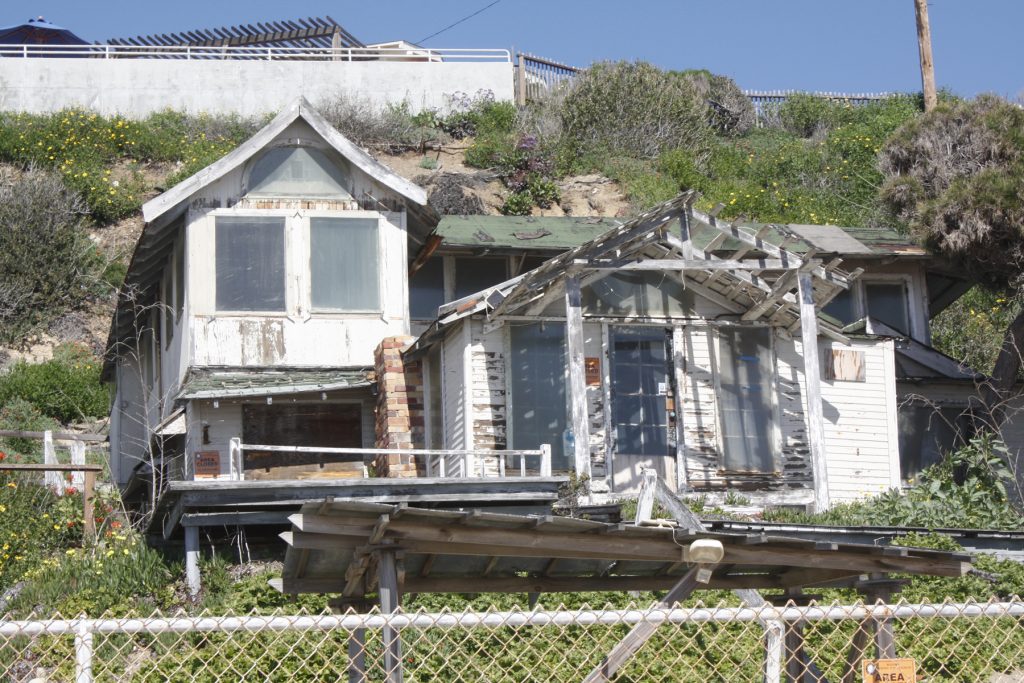
— Photo by Christopher Trela ©
The students will learn about sea level rise, coastal adaptation, climate change, and civil and environmental engineering.
The new program is being developed with the University of California, Irvine.
In a letter to commissioners, UCI Director of the Center for Environmental Biology Travis Huxman said the park represents a “natural laboratory” for science and engineering and is ideal for engaging underserved students.
They are already working together to launch the educational program focused on “understanding systemic changes to our local ecosystem.”
The cottages will serve as an ideal prototype for evaluating the dynamic interface between the built world and natural systems, he noted.
“This project will offer a truly unique opportunity to engage students in an innovative outdoor classroom that captures the fundamental tension between human and natural systems,” Huxman wrote.
Coastal staff did find some conflicts with the project. The subject application involves the extensive restoration work (essentially demolition and reconstruction) to the existing non-conforming bluff face cottages that constitutes new development of structures in a hazardous location.
Coastal Commission staff found that while the project is not consistent with the section of the Coastal Act that is meant to “avoid new development in hazardous locations, and to not rely on protective devices that result in significant alteration of landforms such as bluffs,” this is a unique case. It also improves public access and increases education opportunities for underserved students and therefore warrants approval of the proposed development.
“We recognize the many challenges this project presents under the Coastal Act, and perhaps atypical stance that staff has assumed on policy areas in this case. We find ourselves recommending that the Commission approve development located along bluffs and shorelines that are, at times, as hazardous,” said Karl Schwing, CCC south coast district manager.
With sea level rise, CCC staff expects those hazards may increase over time. There may be a point in time when these hazards will make continued use of at least some of the cottages no long possible in their current location, Schwing noted, but staff feels they appropriately conditioned the permit to address those circumstances when they arise.
State Parks and CCA agreed to all the detailed special conditions, which are “prudent, feasible and implementable,” Newland said.
“There are some challenging elements to this,” he admitted.
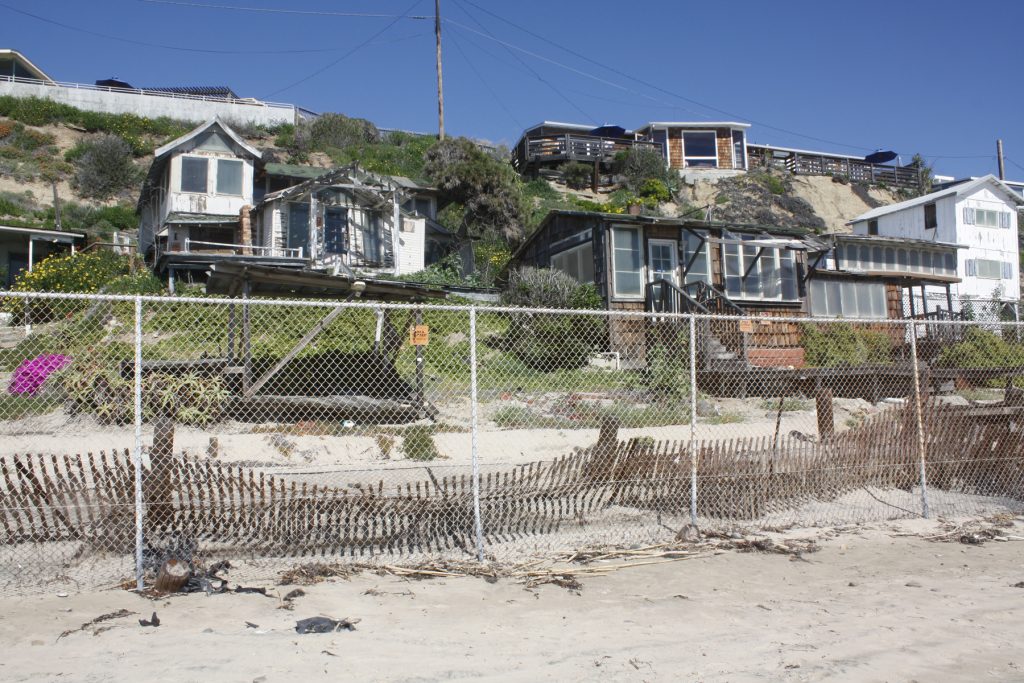
— Photo by Christopher Trela ©
There was also a bit of discussion about a new and improved reservation system that will debut in August. It currently is on a month-to-month system, which has created some issues, Newland said.
Newland commented on the difficulty of getting a reservation. It opens on the first of the month at 8 a.m. and is typically booked up within three minutes, he said. The “trick” is to check back often for cancellations, he added. Some people get in if they “happen to be wandering by” around the time and there is something available.
The system will better balance other aspects, aside from who happens to have the fastest internet connection, which will hopefully widen the net of opportunity for getting a reservation. The aim is to find the most equitable way to distribute the nights, he added.
Brownsey suggested looking into somehow targeting certain schools or underserved areas to give them a better chance at booking a night or filling a cancelled reservation.
“We’re trying to figure out a way to be the most equitable without restricting too often to the public getting their shot at it from a fairness aspect.
All involved commented that it has been a long journey.
There was some back and forth over the last four years, Davick said Thursday. They needed to find a balance, she added.
“There have been a few little twists and turns along the way,” she commented. “The outcome that you’re seeing today is really representative of all those years of hard work.”
Countless hours of work has been poured into this project, said Commissioner Donne Brownsey.
“I can’t tell you, as a sister citizen of California, how deeply I appreciate that and how honored I am that you’ve been able to bring this project to fruition, particularly for those children, for whom access to the beauty of our state is so restrictive and it opens their minds in such an extraordinary way,” Brownsey said.
“In the end, it’s a better project,” and it will be beneficial for the park in the long run, she said.
It’s been a long partnership between state parks, CCA and the Commission, Davick said.
“The history of Crystal Cove’s formation as a state park, including the historic district, is tightly entwined with the commission’s,” Schwing said.
The CCC played a significant role in helping the park expand its boundaries and protect the historic district
This is an important day for everyone involved and has been a long time coming, Schwing said.
“This has been a long, hard journey,” Davick said. Together, they have created a “huge public access success story.”
For more information, visit crystalcovealliance.org, crystalcovebeachcottages.com, and coastal.ca.gov.
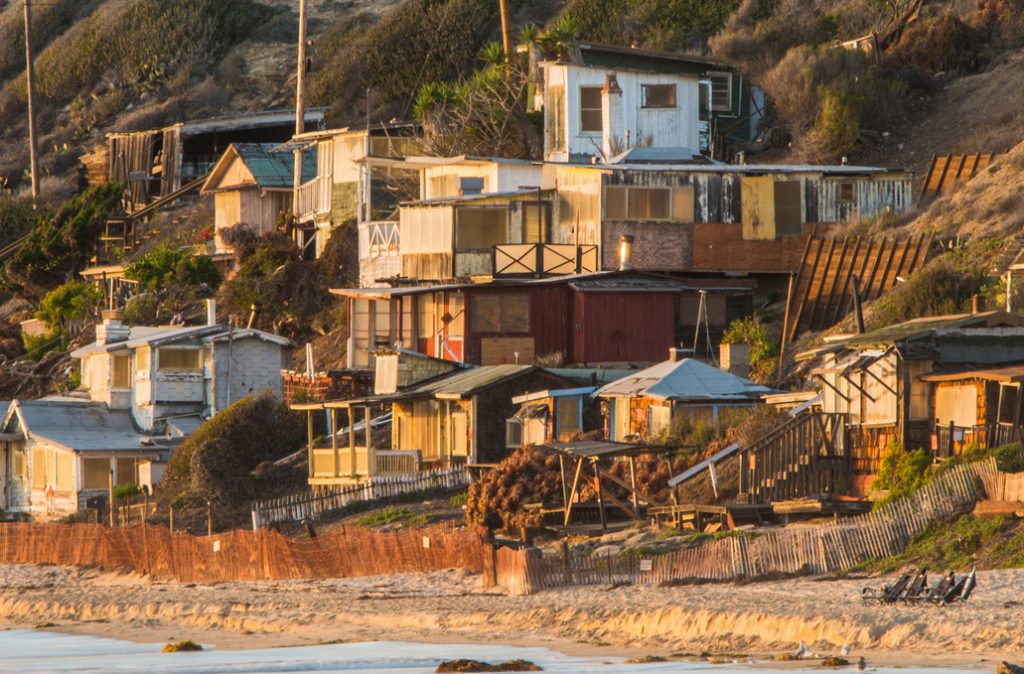
— Photo courtesy Crystal Cove Alliance ©



